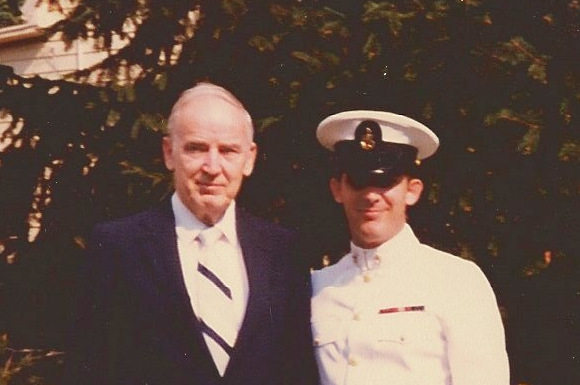 |
An example? Try inserting your biggest issues into the scene here. How
relevant and helpful are your concerns in such a context? Is there
a larger perspective, a broader view that might be helpful?
|
In Spain, my father had come to visit us while we were stationed overseas. In long walks and talks, I'd lectured my dad on a variety of issues from my position of superior understanding.
 Years and years later, he'd laughed as I apologized; he said, "I figured you'd grow out of it." That was him explaining how he'd put up with the nonsense of my 20's. Like most my age, I'd had emphatic opinions on subjects about which I knew little.
Years and years later, he'd laughed as I apologized; he said, "I figured you'd grow out of it." That was him explaining how he'd put up with the nonsense of my 20's. Like most my age, I'd had emphatic opinions on subjects about which I knew little. A gracious gentleman, he had offered thoughtful conversation on a variety of issues which took root over the years.
A gracious gentleman, he had offered thoughtful conversation on a variety of issues which took root over the years.Opinions are easy to come by. Listening to the news will lean you left or right, incline you to panic or protest, or fear. Listening to friends who agree with you is the least informative of practices unless somehow objectivity is inserted in the conversation. Thoughtful discussion with those who disagree with you can be wonderfully productive.
Experience is an opinion-shaper, too. The church in America is loved and despised. The variance is perhaps based on experiences with some particular group or issue. Criticisms abound, but are rarely heard. Appreciation rests firmly among adherents. Both sides have something to offer, so why the boundary between them? The church is not the gospel, of course.
 |
Facts and opinions are only distantly related. Preferences for
such vary from group to group. A larger, inclusive context can help clarify things. Can we assist the process? |
Can we learn early? Can we model such thinking for our children? And for our friends?